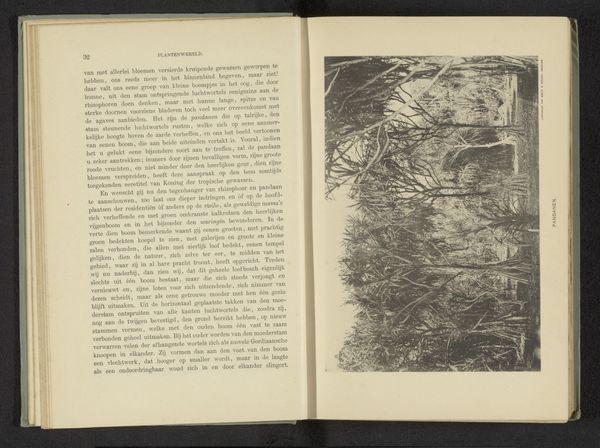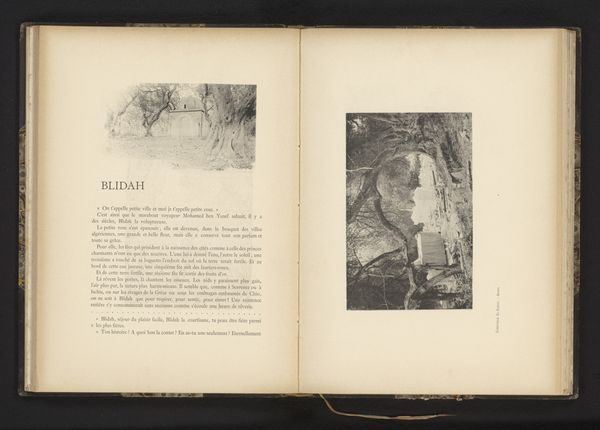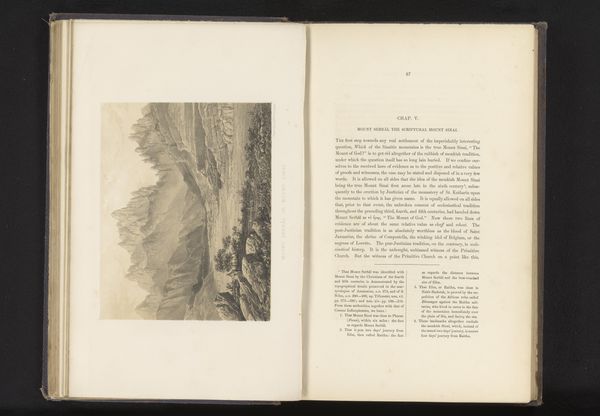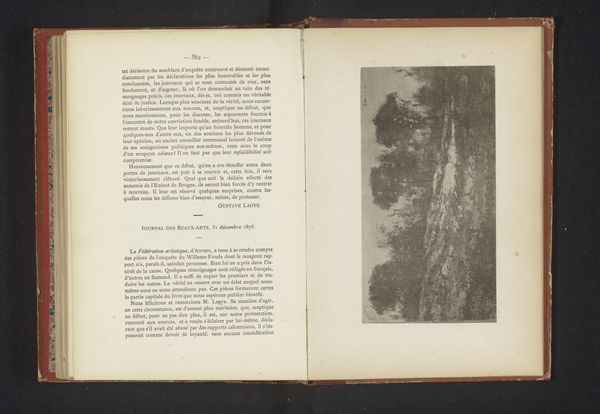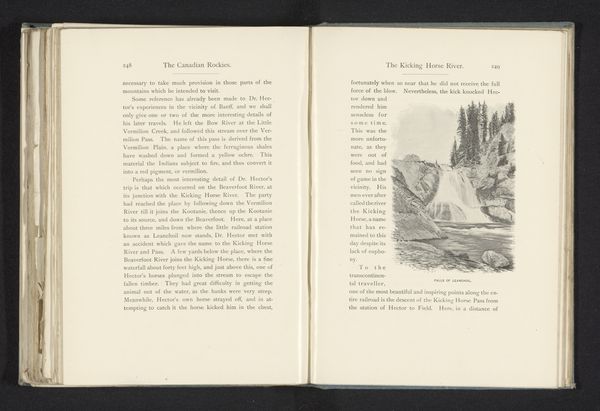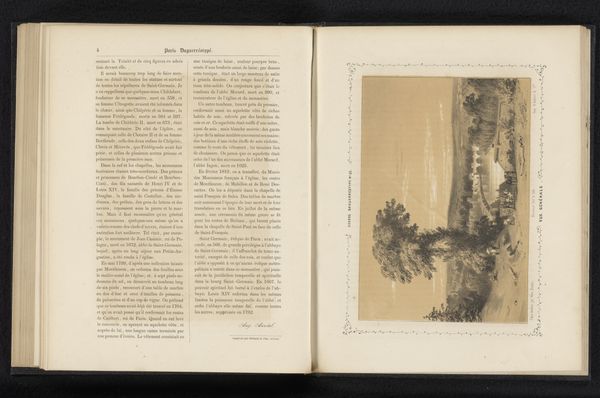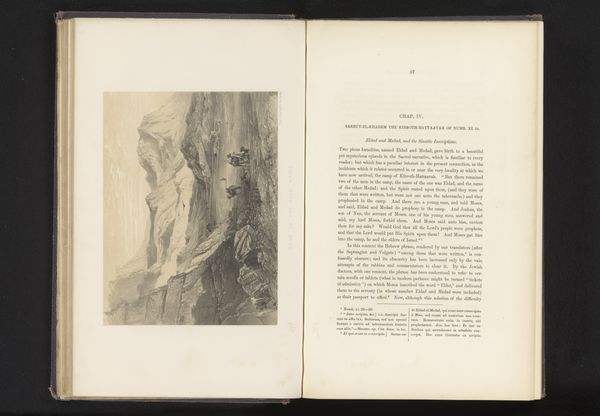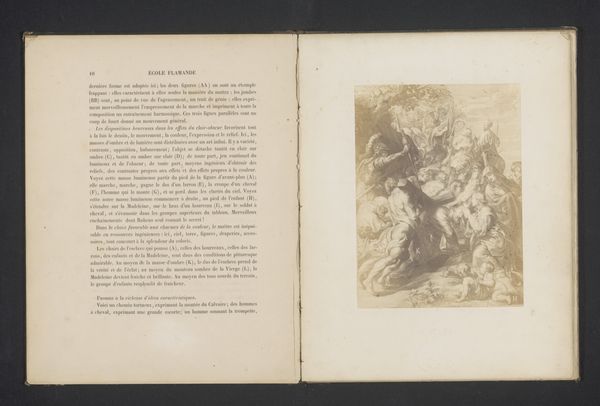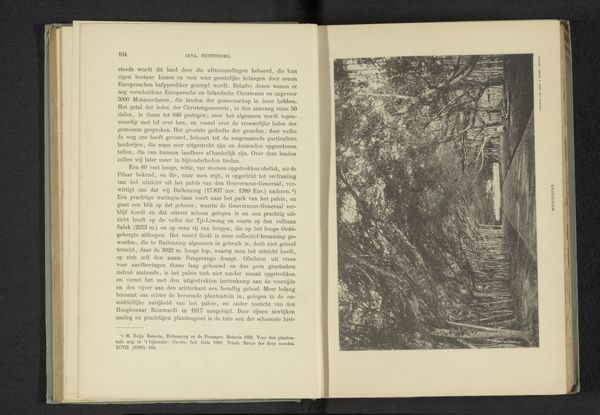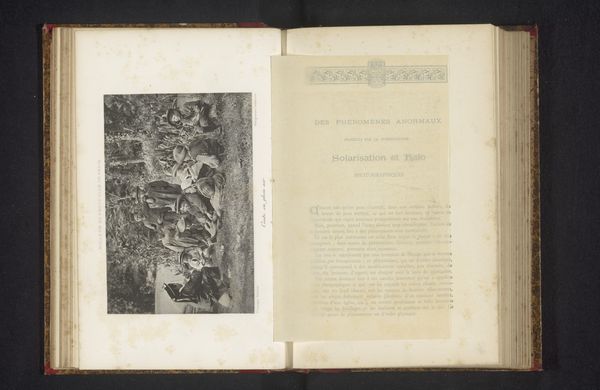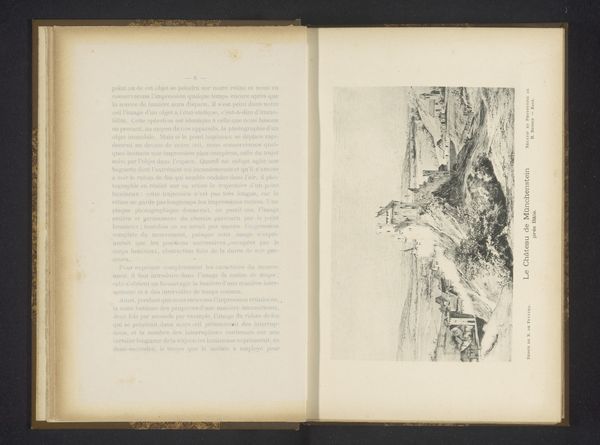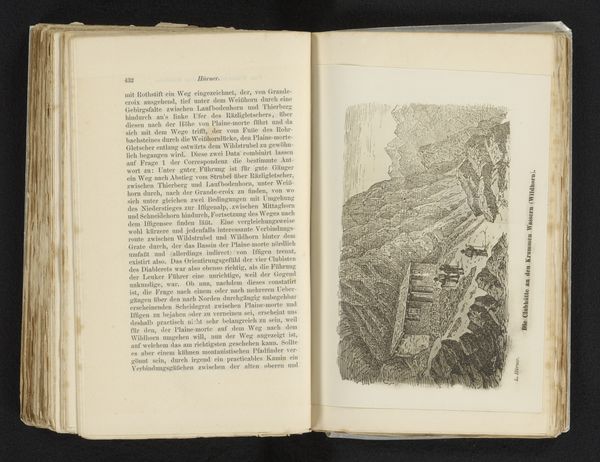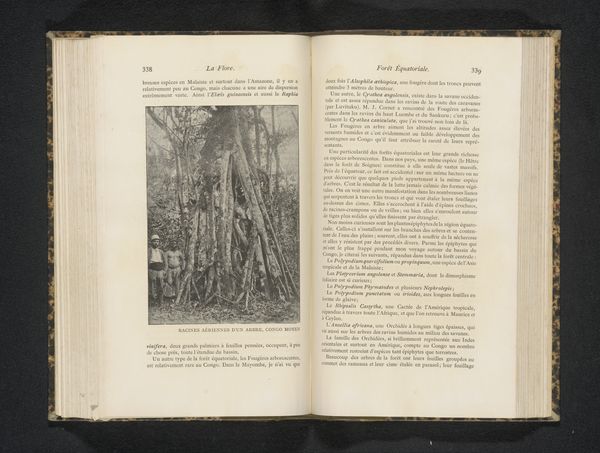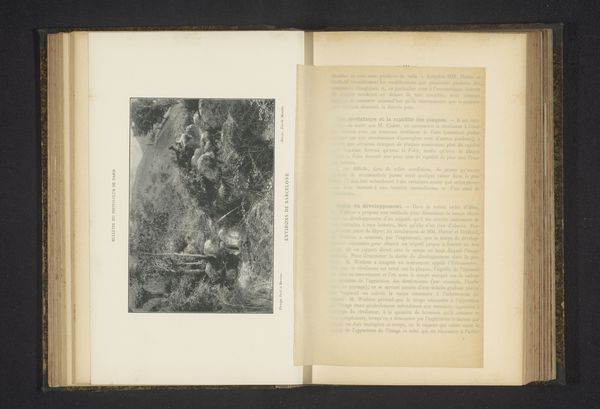
Fotoreproductie van het schilderij 'Ravin dAmélie' door Paul Gustave Robinet before 1884
0:00
0:00
print, paper, photography
# print
#
impressionism
#
landscape
#
paper
#
photography
#
forest
Dimensions: height 178 mm, width 251 mm
Copyright: Rijks Museum: Open Domain
'Fotoreproductie van het schilderij 'Ravin d'Amélie' door Paul Gustave Robinet' is a photograph of an artwork, printed by Valadon & Cie. Boussod. The original painting invites us into a landscape, a ‘ravine’ or cleft in the earth named after Amélie. During the 19th century, landscape paintings grew in popularity as industrialization changed the way people related to nature. Here, the natural world is represented as untouched. What is the relationship between nature and culture? How does photography enable the circulation of artworks? What does it mean when a painting is reproduced for mass consumption? While the original painting may have been presented as a scene of untouched nature, in its photographic form, the artwork enters a new type of landscape – the printed page. It’s an emotional experience to move between the representation of nature and the reality of a book. Consider how this reproduction transforms our understanding of the painting and its subject. What feelings does this transformation evoke in you?
Comments
No comments
Be the first to comment and join the conversation on the ultimate creative platform.
